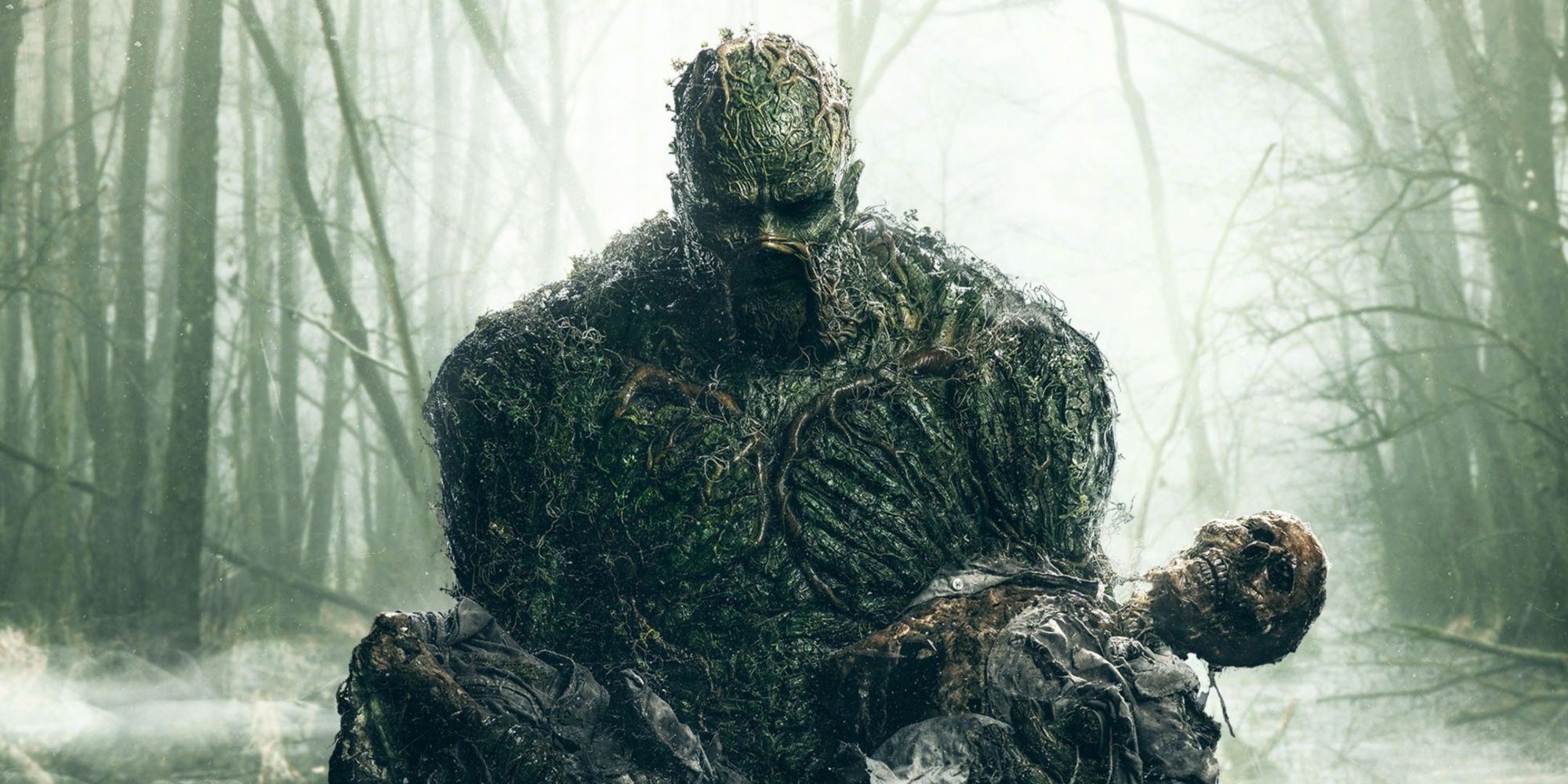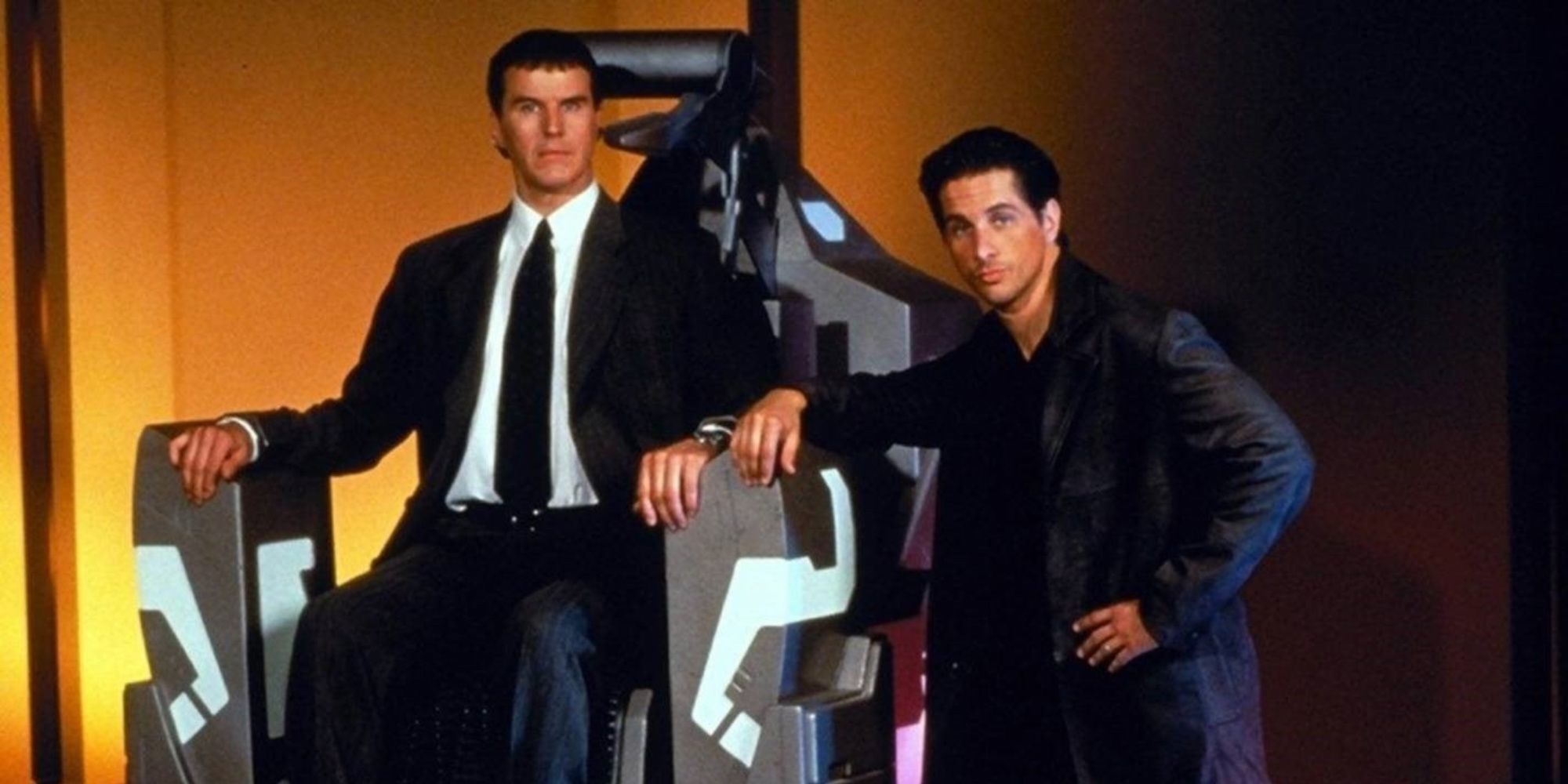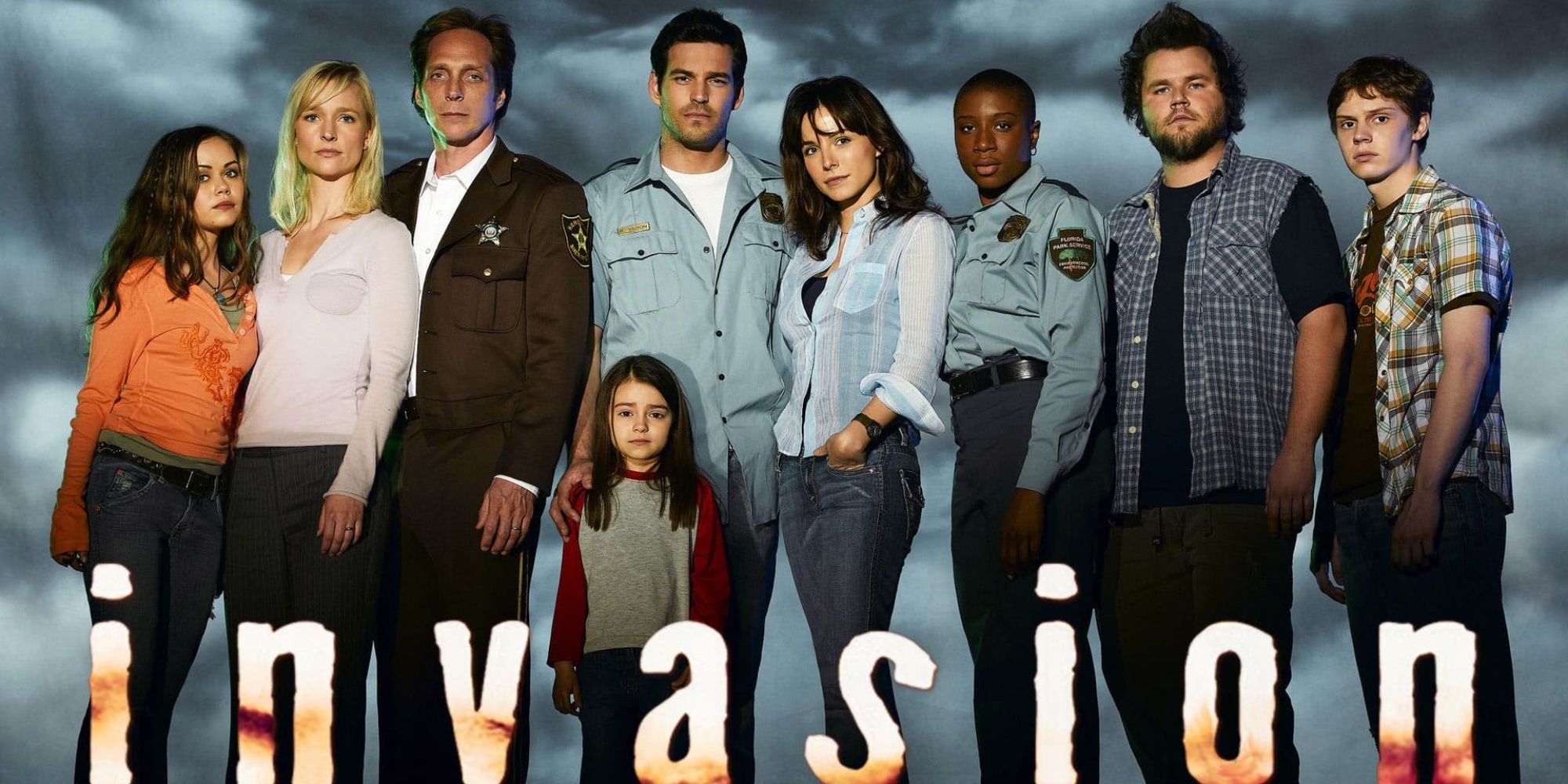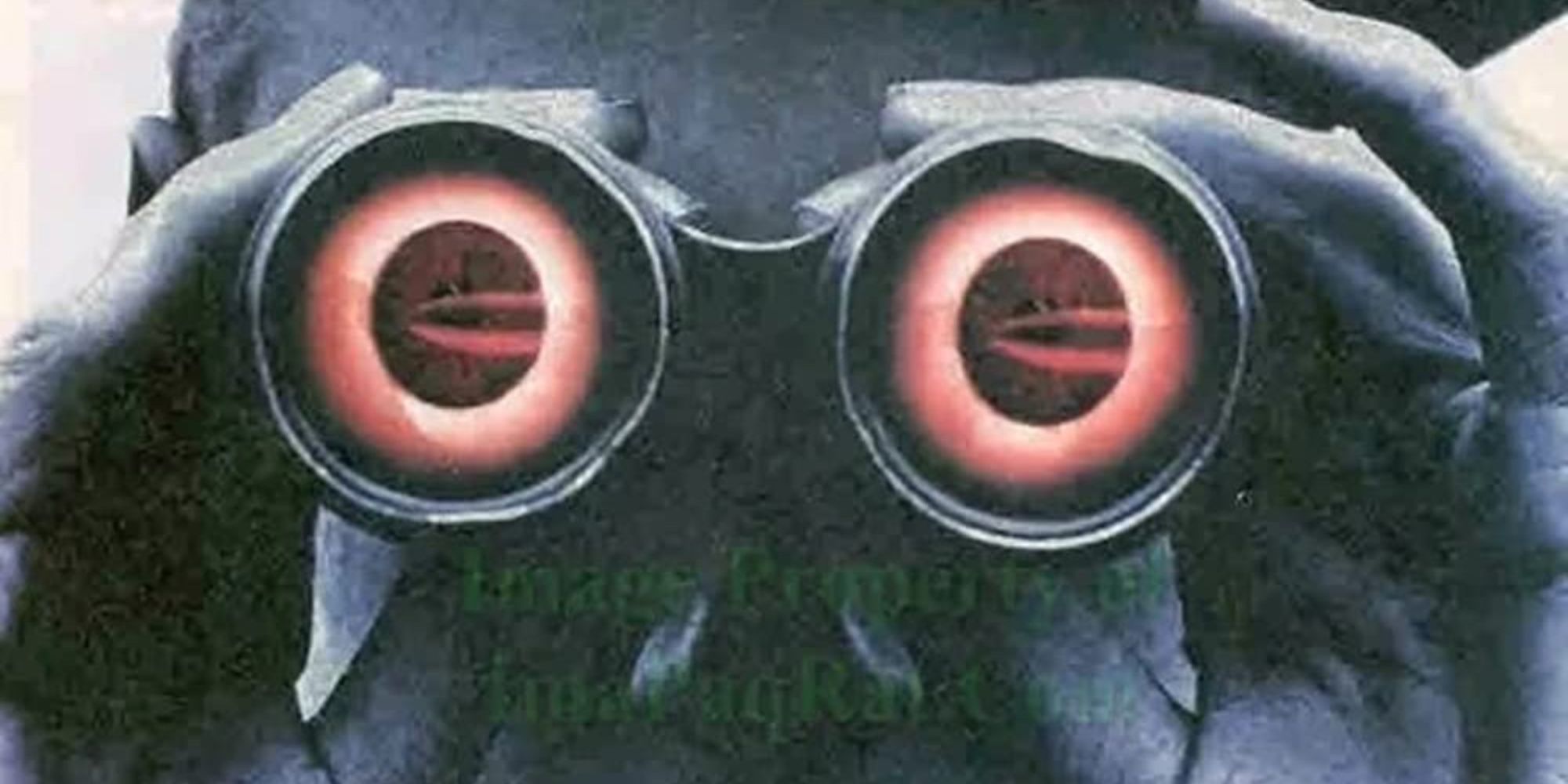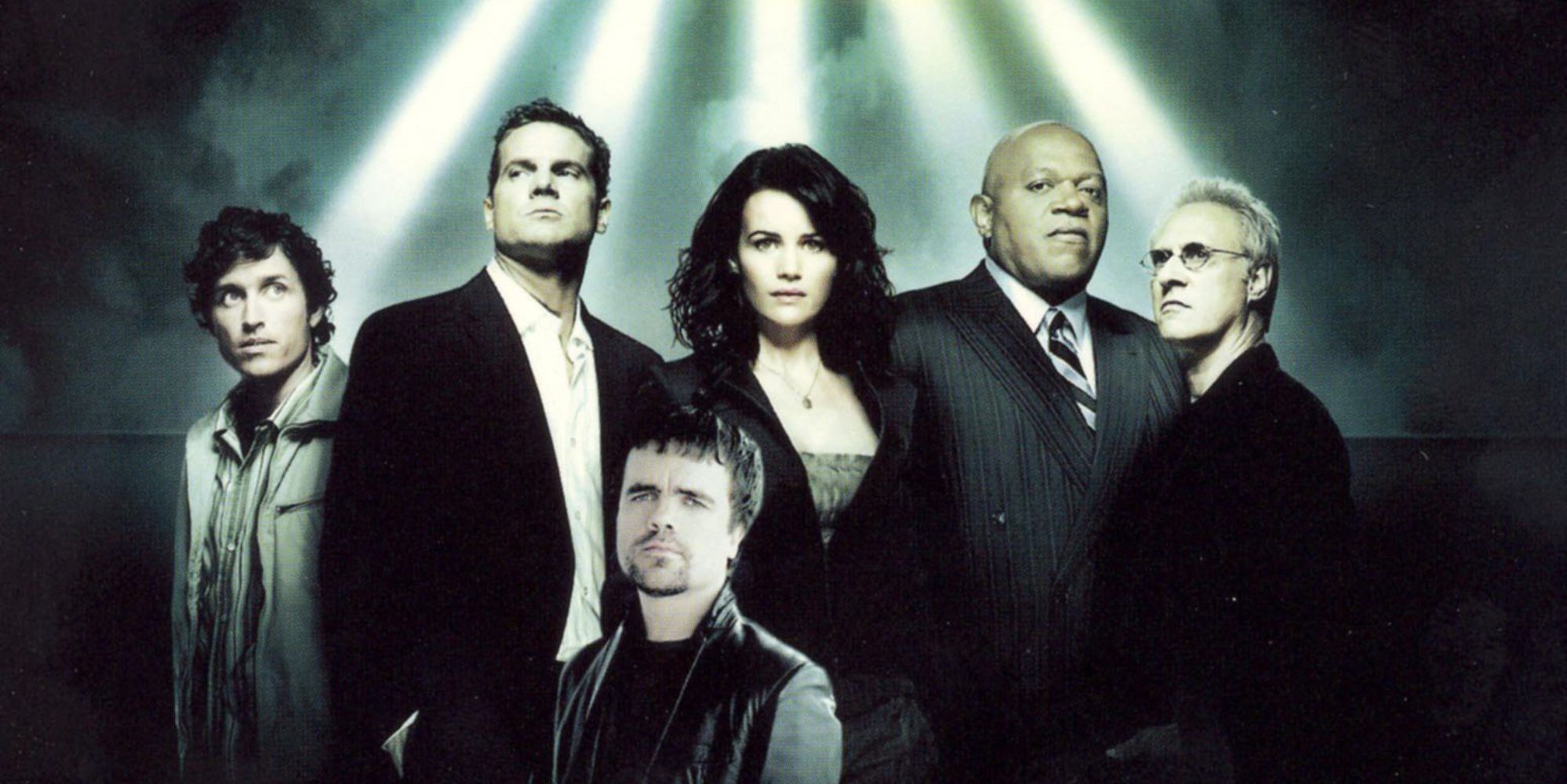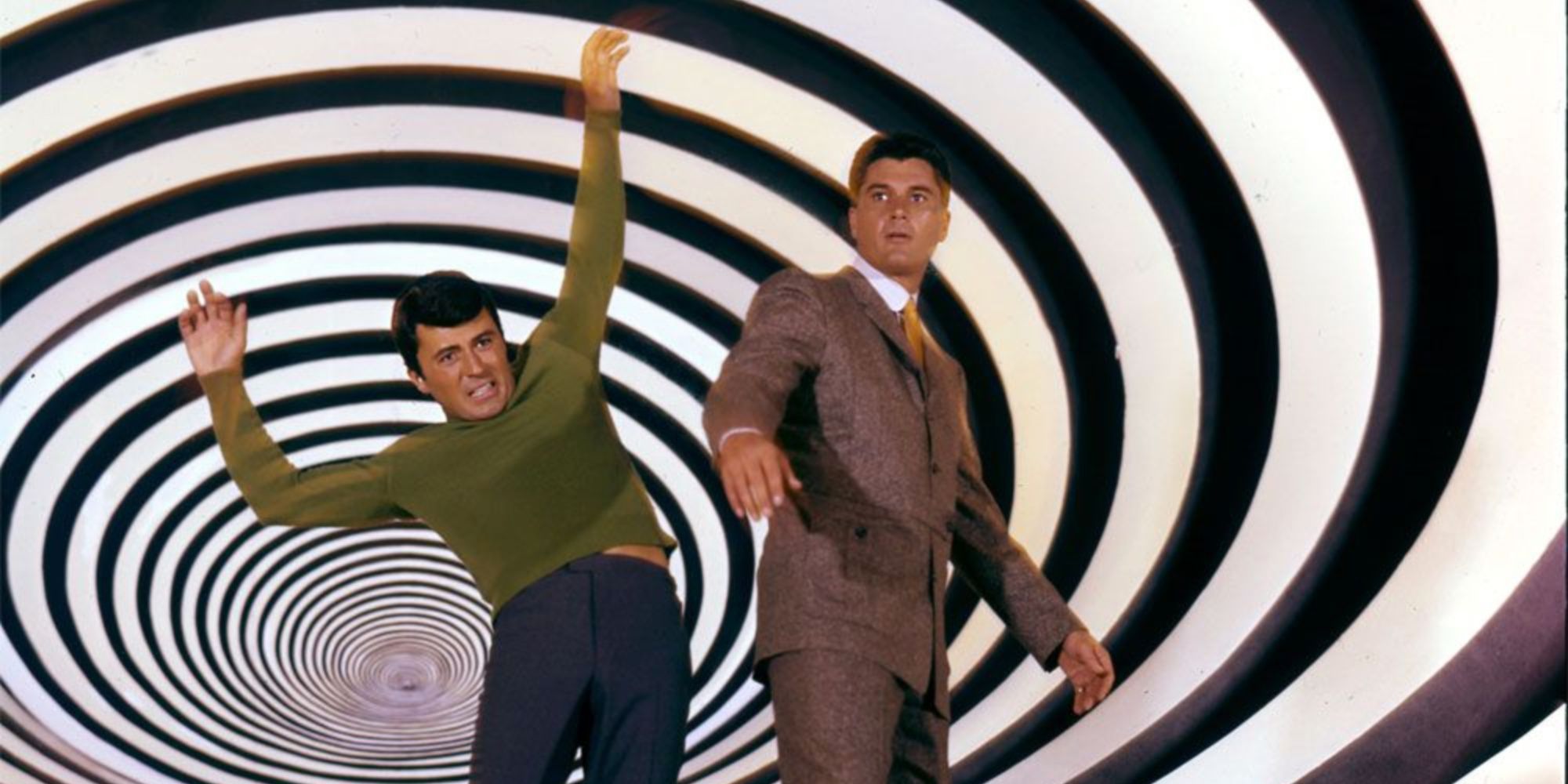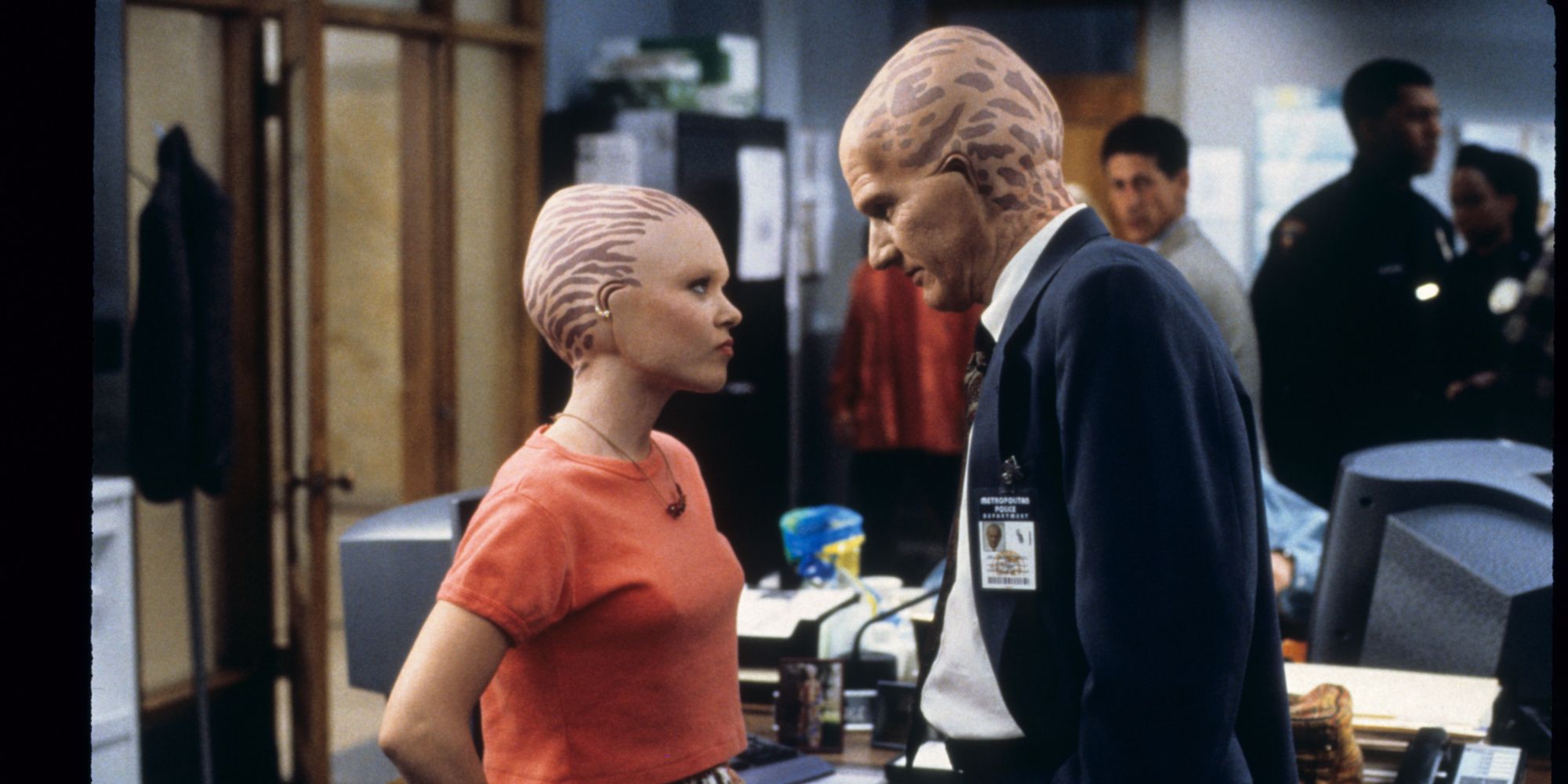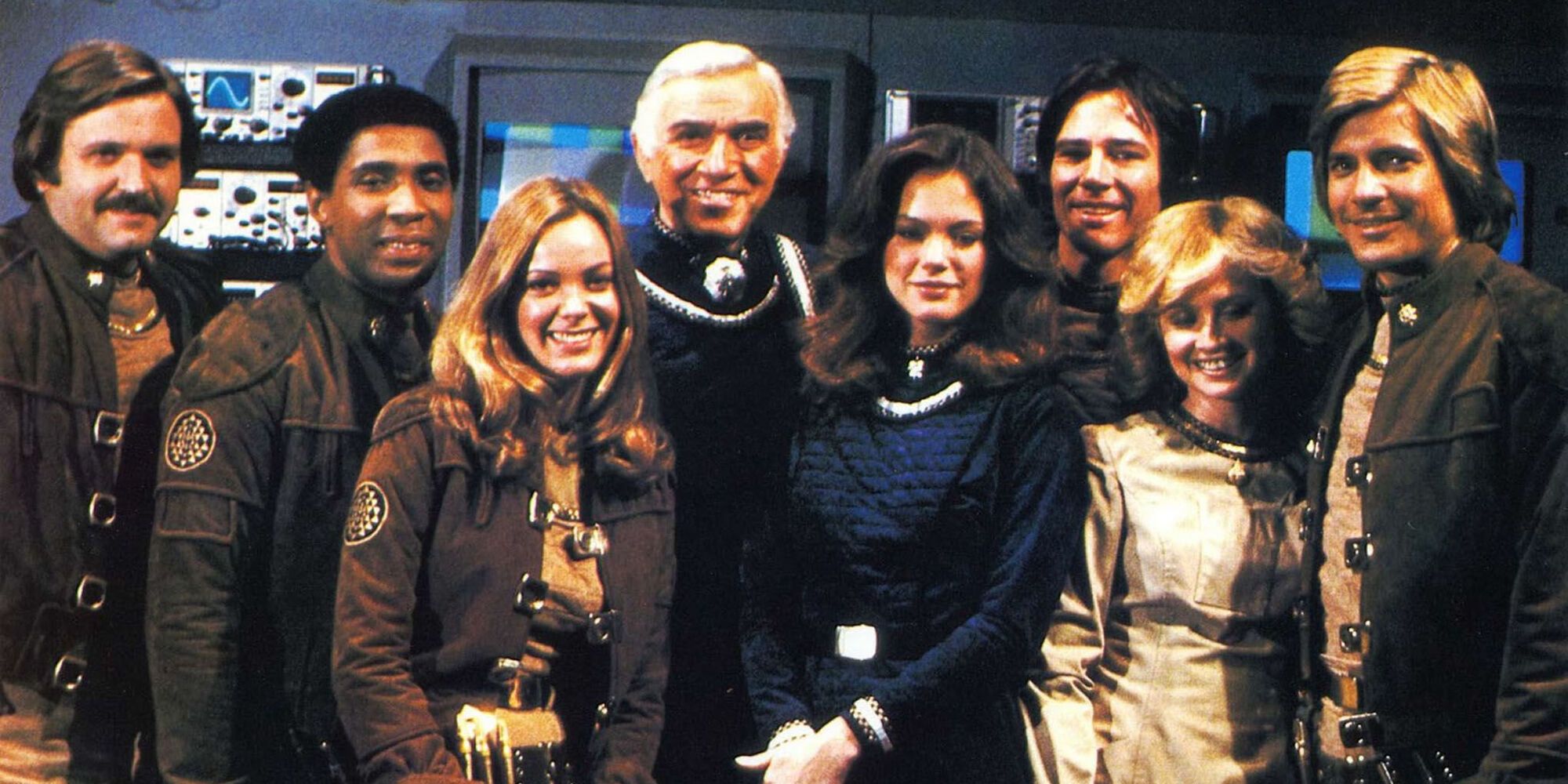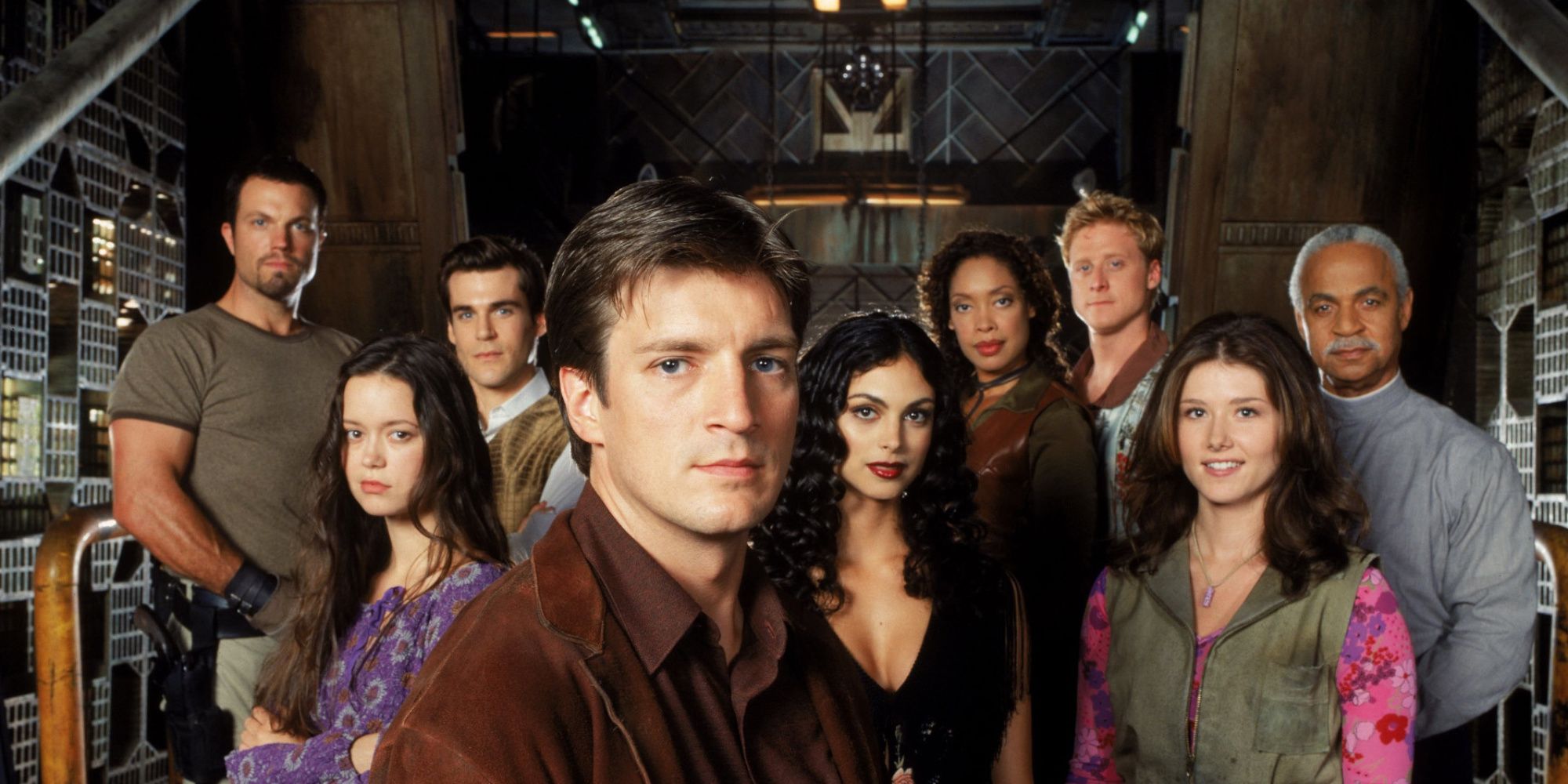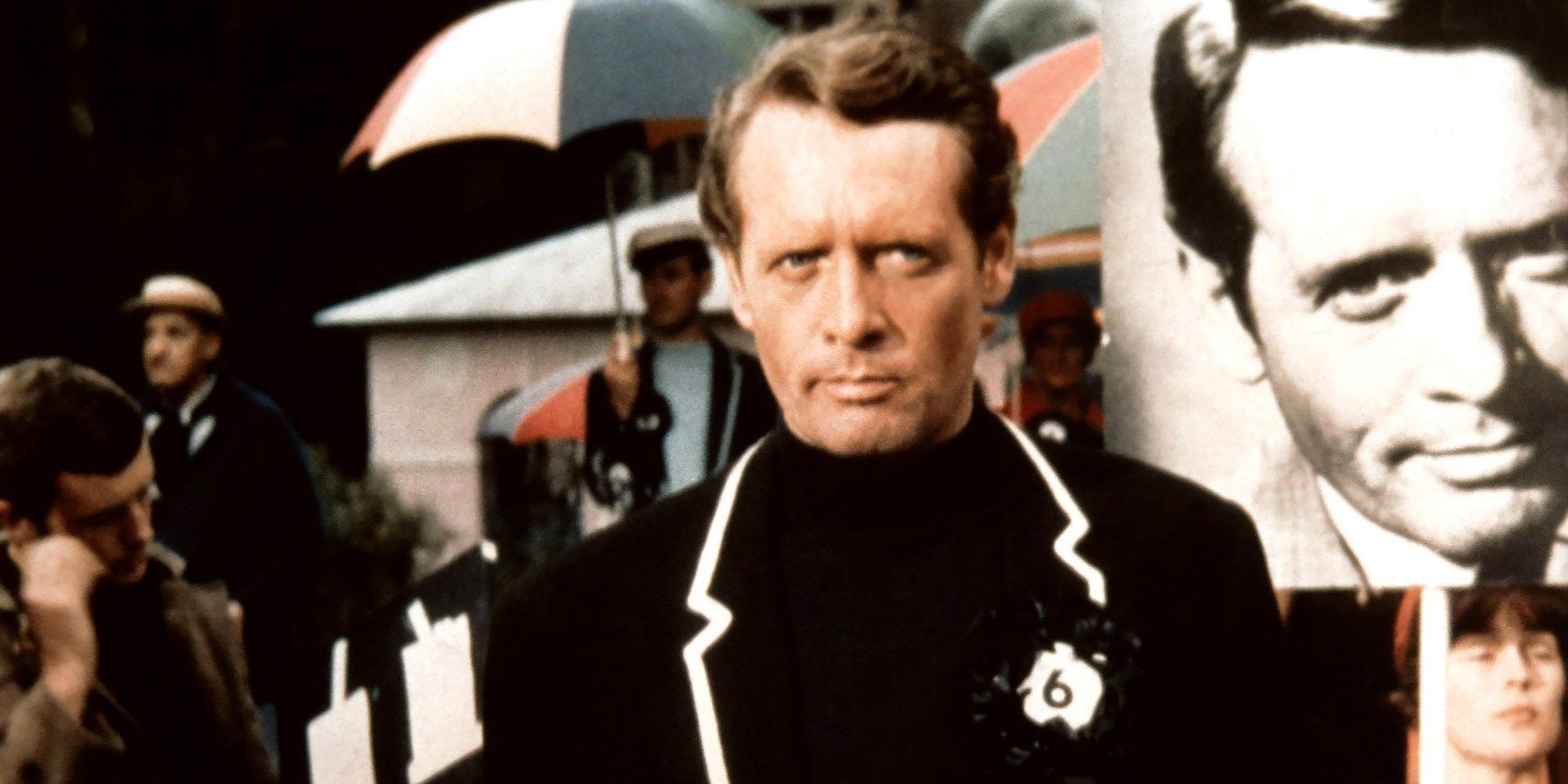Science fiction is one of the most enduring genres of TV. It's a genre that engages with an audience by making them think about the state of the world, and where we're going.
From Star Trek to The Twilight Zone to Westworld, there have been many sci-fi shows that last for years and become cultural touchstones. However, for every sci-fi show that's a certified hit, there are countless others that only lasted one season.
'Swamp Thing' (2019)
Created for the short-lived DC Comics streaming service, DC Universe, Swamp Thing was a James Wan-produced, sci-fi horror series based on the comic book of the same name. The show focuses on Abby Arcane (Crystal Reed), who returns to her hometown of Marais, Louisiana to confront her past head-on. There, she meets Alec Holland (Andy Bean), a scientist who is murdered after discovering a criminal operation in the swamp. Alec is then resurrected as the Swamp Thing (Derek Mears), an elemental creature whose purpose is to defend the swamp, Marais, and the natural world at large.
The show was exceptional, balancing science fiction and horror to create a world unlike any we've seen before. Unfortunately, the show had its legs cut out from underneath it before it even premiered. While in the final month of filming, the episode count was cut from 13 to 10 due to budget issues regarding tax credits. It was then announced that, as an effect of the said issues, the show would be canceled. When DC Universe shut down, the streaming rights were picked up by The CW, where it has become the only DC Universe original to not continue on.
'Total Recall 2070' (1999)
Total Recall 2070 is a show you've probably never heard of, but you're probably familiar with its source material. Loosely based on the 1990 Arnold Schwarzenegger movie Total Recall, which itself is an adaptation of the Philip K. Dick short story, "We Can Remember It For You Wholesale", the show has more in common with the science fiction masterpiece Blade Runner, also based on a Philip K. Dick novel, Do Androids Dream Of Electric Sheep?.
The show followed detective David Hume, who, after his partner is killed by self-aware androids, teams up with an android himself to look into a dangerous conspiracy involving six of the major corporations than run society. It's safe to say that the show was ahead of its time in many regards. It was mature, both in terms of its content and the handling of its themes about the prejudices we hold, and what it means to be alive in the modern world.
'Invasion' (2005-2006)
An adaptation of the iconic Invasion Of The Body Snatchers, ABC's Invasion was an unfortunate victim of circumstance. The show was set in a small town in Florida where water-based aliens begin taking over the residents after a hurricane. Led by William Fichtner, Invasion featured quite an impressive cast, also including 2000s TV mainstay Tyler Labine and future stars Evan Peters and Elizabeth Moss. Originally conceived with a five season plan, the show featured a well-paced plot with plenty of mystery and twists to keep the audience engaged.
Invasion was received well, earning mostly positive reviews and pretty good ratings, airing in the time slot after the mega hit show Lost. However, about a month before the show was set to premiere, Hurricane Katrina hit and caused unimaginable damage to the southeastern United States. The hurricane plot was quickly de-emphasized in the marketing for Invasion, and a content warning was added to the pilot episode. Whether it was the content itself, or the show not meeting the extremely high expectations that came along with the post-Lost time slot, ABC made the decision to pull the plug on Invasion after only one season.
'Perversions Of Science' (1997)
HBO's Perversions Of Science was created to essentially be the sci-fi cousin of the horror anthology series, Tales From The Crypt. Each episode told a standalone story centered around a sci-fi concept, such as time travel, usually based on a story from EC Comics, and featured well-known faces both in front of and behind the camera, including William Shatner, Walter Hill, Tobe Hooper, Jason Lee, and Ron Perlman. Much like the iconic Cryptkeeper, each episode of Perversions Of Science was introduced by a robot named Chrome, who would wrap up the themes of the episode with an innuendo-filled joke.
Like every anthology series, some episodes of Perversions Of Science are better than others, but all 10 episodes are worth a watch. The show captures a moment in TV history when hardcore genre television was a rarity, and actually felt like edgy content, especially on HBO. Unfortunately, it's many similarities to the more popular Tales From The Crypt are probably why it struggled to find an audience of its own.
'Threshold' (2005-2006)
2005's Threshold was centered on a secret government organization whose mission was to investigate and track the effects of extraterrestrial contact after an incident involving several members of the US Navy. The show had elements of the case-of-the-week procedural CBS is known for, but set itself apart by focusing primarily on a larger story from week to week. The cast was incredibly strong, featuring several known faces in Carla Gugino, Peter Dinklage, Brent Spiner, and Charles S. Dutton.
Unfortunately, Threshold struggled to find an audience, and after being moved from Friday nights to Tuesday nights against the incredibly popular Law and Order: Special Victims Unit, CBS canceled the show citing low ratings.
'The Time Tunnel' (1966-1967)
The Time Tunnel is a 1966 science fiction show that just oozes 60s style, especially with its trippy, colorful opening title sequence. The show follows two scientists who have been thrown through time by an experimental time machine. In each episode, they find themselves in a different time, and have to jump through to the next, hoping to get back to their time.
The Time Tunnel was the kind of fun, high-concept, episodic TV that proved to be popular in the 1960s and the show was something of a modest hit. However, the network was convinced to drop the show in exchange for another series called The Legend of Custer, and The Time Tunnel was canceled. For a show that didn't make it past one season, The Time Tunnel has had quite a legacy. There were spin-off novels, comic books, a board game, several attempts to reboot the show and on top of all that, the show's concept heavily inspired the hit series, Quantum Leap.
'Alien Nation' (1989-1990)
Alien Nation was a TV spin-off of the sci-fi movie of the same name, centering around an LAPD officer who is partnered up with an alien to solve crimes in the near future. Set in a world where aliens and humans live together on Earth, Alien Nation touched upon a lot of themes that weren't really tackled on TV at the time, including prejudice and bias within the police force.
Alien Nation wasn't actually canceled due to low ratings. It was a bit of a hit for Fox, but the show's production values proved to be difficult to maintain amongst the network's financial issues, and the show was canceled after one season. The show's did live on, however, thanks to a series of TV movies that aired throughout the 1990s, comic books and novels.
'Battlestar Galactica' (1978-1979)
While the 2003 revival of Battlestar Galactica ran for several seasons on the Sci-Fi channel, and became something of a cultural phenomenon, the original 1978 series wasn't quite as successful. The show followed the only survivors of a human space colony on the run across the galaxy to escape the human-hunting robots known as the Cylon, and find the long-forgotten planet Earth.
The show was unlike anything else on TV at the time, offering up special effects and a setting rarely attempted on a television budget. Even if some of it may seem rather low-budget compared to today's sci-fi, it was quite impressive for its time. In the 1979s, science fiction was considered more niche than in today's nerdy culture. That combined with the success of the show's mid-2000s revival, and its future developments make it clear that Battlestar Galactica wasn't bad, it was just ahead of its time.
'Firefly' (2002-2003)
Perhaps the most famous one-season sci-fi show ever, Firefly developed such a rabid cult following that it actually got revived in the form of the feature film, Serenity. It's probably the best example of a show just barely ahead of its time. Created by Joss Whedon, the show followed the renegade crew of the spaceship Serenity, led by Nathan Fillion's Mal, as they evade and fight the authorities that are after them.
Firefly was a thrilling, incredibly entertaining mix of western tropes in a sci-fi setting. That uniqueness among the TV landscape at the time is partly what inspired its small fan base to be so loyal to the show, going as far as to start a campaign to have the show picked up by another network after its cancellation. The campaign was unsuccessful at the time, but its fan base has never lost hope. Firefly has gone on to become a shining example of how, thanks to its fans, a show can never really die.
'The Prisoner' (1967-1968)
The Prisoner is a science fiction show that may not immediately sound like science fiction. The show follows a British intelligence agent who, after resigning from his job, is kidnapped and held prisoner in a mysterious village, where various strange methods are used to try and extract information from him. What makes the show great sci-fi is how the show integrates technology into the plot. The village is guarded by a strange, floating orb called a rover, which can incapacitate or kill the prisoners.
The show was avant-garde in its plot and didn't try to explain everything in logical detail. That wasn't the point of the show. The show asked the viewers questions, without ever planning on giving them all the answers. This made the show incredibly compelling, but also made the audience clamor for more when the show ended after one single series. The Prisoner has proven to be one of the most influential and important shows in TV history, challenging what audiences expect from science fiction.

-6.jpg)
